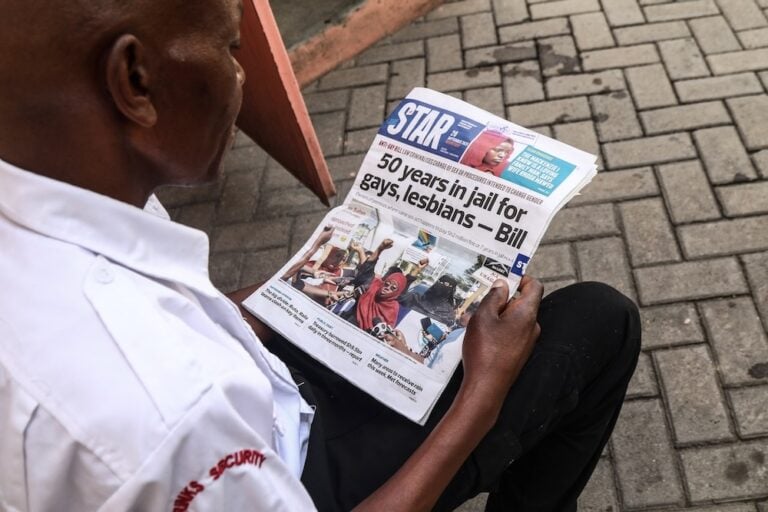(ARTICLE 19/IFEX) – As Kenyans await the results of the Ethnic Clashes Inquiry (see footnote), which started in July of this year, ARTICLE 19 is publishing “Kenya: Post-election political violence.” The report looks at some of the roots of the violence in the Rift Valley which took place in 1998 following the Presidential elections, and […]
(ARTICLE 19/IFEX) – As Kenyans await the results of the Ethnic Clashes
Inquiry (see footnote), which started in July of this year, ARTICLE 19 is
publishing “Kenya: Post-election political violence.” The report looks at
some of the roots of the violence in the Rift Valley which took place in
1998 following the Presidential elections, and caused a number of deaths and
injuries, as well as displacing thousands and causing community rifts which
may never heal.
Summarising the report’s conclusions, Frances D’Souza, Executive Director of
ARTICLE 19 said:
“Whatever the initial spark which started the violence, the conditions in
Kenya which allowed it to escalate have not changed. Freedom of expression
and information flows are still limited, the government still controls
broadcasting – the major source of news for most Kenyans, and the culture of
impunity remains. In other words, the ground is fertile for other such
events to occur.”
ARTICLE 19’s report concludes that rumour and misinformation played a large
part in the spread of fear and aggression during the ‘clashes’. These
emotions predominate because there was so little independent, impartial and
reliable information to act as a reliable counterbalance.
A key reason for the lack of accurate reporting and ongoing media imbalance
is that media control and ownership in Kenya are concentrated and highly
politicised. In practice, this results in media workers being denied
information or access due to perceived or real ethnic or political
allegiances. Stories are skewed accordingly. The country’s public
broadcaster, the Kenya Broadcasting Corporation, whose pro-government bias
has been documented by ARTICLE 19 previously, failed once again to provide
impartial and accurate reporting.
The result is that Kenya’s people cannot trust the information which they
read in newspapers, see on television, or hear on the radio. This is bad
enough under normal circumstances, but in Kenya in early 1998 it became a
matter of life and death. It could easily do so again unless the excessive
government controls on the media are removed, media independence is
guaranteed and the culture of impunity is ended.
Footnote: ARTICLE 19 believes that the commission of inquiry must
demonstrate that it has been thorough and that it has sought access to all
areas and viewpoints. The report, due in December, must be public, and the
government must respond to allegations/reports of law-breaking and official
incompetence with thorough and impartial investigations and, where
appropriate, judicial proceedings.


